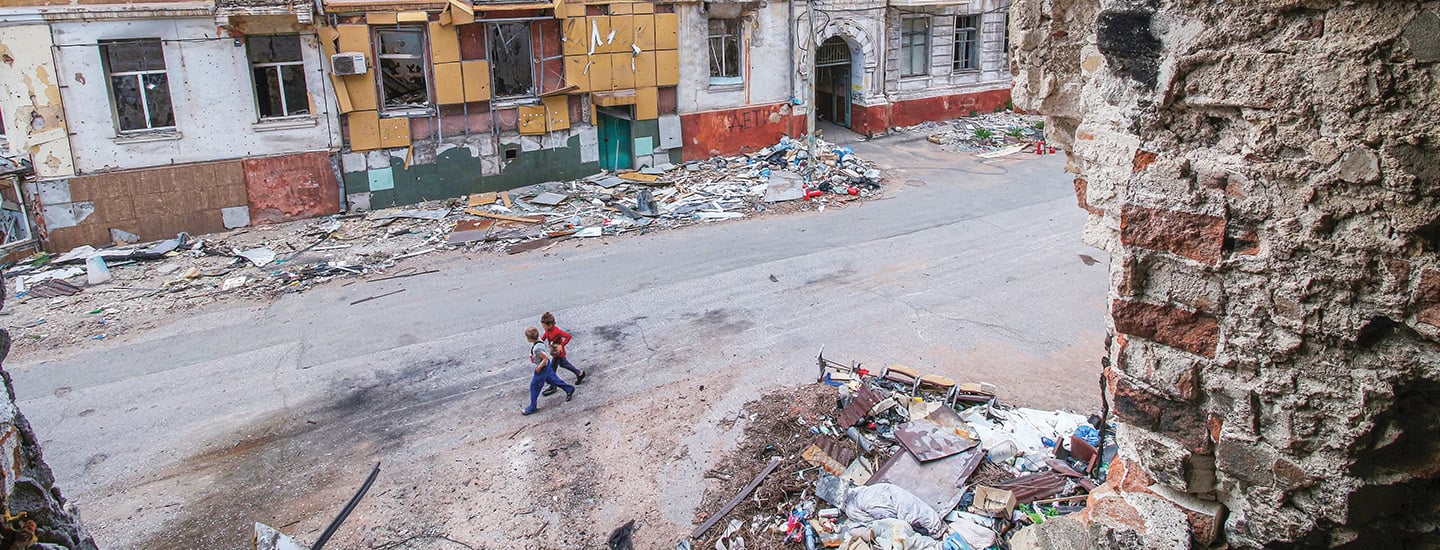Irina Kiselyk is from the village of Shklo, close to the western city of Lviv. As news of the Russian invasion spread on the morning of February 24, she and her family began preparing for the worst.
I remember that first night was the scariest night of my life. I didn’t close my eyes even once. The next day, when I was at home, my mother called and said, “Stay calm, but pack up your backpack, for yourself, for your brother, with everything you need the most.” And then I felt so bad, I started crying. When you ask if it is possible to put everything into one backpack—your whole life—you understand that you can’t.
Dad drove us to the border, and then he went back home. We went by foot, not by car, because people in cars waited in line at the border for three days. It was so mentally hard, really. I would not like anyone to feel how I did then.
My dad called later and said, “I’m sorry for everything. If something should happen, remember that I love you all.” I told him, “Don’t say that. I don’t want to hear it, because in one, two, or three weeks we will come back home, and everything will be fine.”
From the border we were taken in by friends, and now we live with them in Warsaw. We all live in the same room—my mother, my sister, and my brother. But we don’t think about this when we read the news about what’s going on at home. When Dad calls and says what is happening. When you read that our army has nothing.
My friends who stayed in Ukraine worry about their lives. They don’t know what could be next. Will you survive the night or not? Now my father is fighting in the war, and when I ask what will happen, he says he doesn’t know. I am proud of all of them. We are Ukrainians, and we should have freedom.

